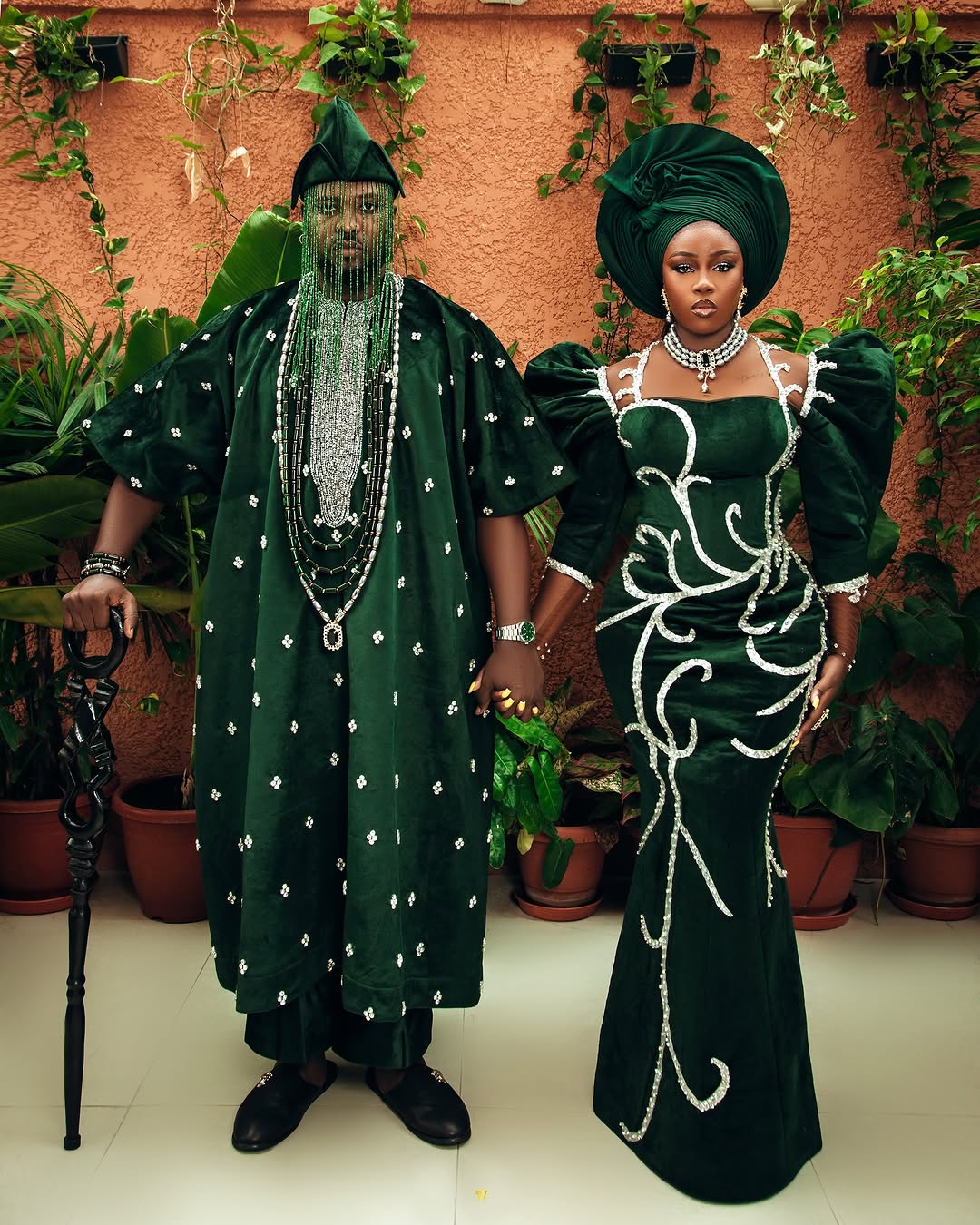Weddings in Nigeria are not just about love — they’re a full-blown production. Think: multiple events, a crowd big enough to fill a stadium, and vibes that could power an entire city. But before you start picking your color of the day or deciding if your cake should spin (because yes, it’s 2025 and cakes now rotate), there’s one unspoken topic that can cause serious tension — who handles the bills?
Because when love meets billing… somebody’s account balance must answer. Now, who should handle the bills for a Nigerian wedding?
Table of Contents
First Stop: The Introduction — Who Pays What?
Before the big “I do,” there’s the introduction. This is where both families meet formally to say, “We’ve seen your daughter, we like her, and we’re serious.”
Now, in most Nigerian cultures, the introduction is usually hosted by the bride’s family, it’s her home turf. That means they handle the setting, the food, and the general hospitality. The groom’s family, on the other hand, comes bearing gifts, usually in the form of drinks, fruits, yams, wine, and envelopes (you know what’s inside).
While the event is smaller than a traditional wedding, it’s still fancy enough to have a decorator, MC, photographer, and that one uncle who insists on giving a speech nobody asked for.
So yes, the bride’s family handles the hosting, but the groom’s side often brings monetary gifts and contributions to show seriousness. Basically, it’s teamwork — Nigerian edition.
Then Comes the Traditional Wedding — Culture Meets Cash
This is where tradition truly shows up in Ankara and gold lace.
Traditionally, the groom and his family handle most of the bills for the traditional wedding. That includes the bride price (dowry), a list of marriage items (depending on her tribe, which can range from yams to kitchen utensils to expensive wrappers), and the event expenses if it’s hosted in the bride’s compound.
However, things are evolving. Some brides now share costs or help with logistics. Especially when the event is large-scale and glam, think Veekee James-inspired outfits, luxury canopies, and 360 cameras. Let’s be real: if the bride wants fireworks and a live band, she might chip in to make it happen.
In Yoruba culture, it’s called “idana”; in Igbo culture, “igba nkwu” — both colorful, both expensive, and both capable of humbling a bank account.
The White Wedding — Where Modern Love Meets Modern Bills
Now, this is where the real spending begins. Venue, decor, catering, wedding dress, suit, makeup, photography, videography, DJ, MC, hotel bookings, gifts for bridesmaids and groomsmen… the list can stretch longer than a gele tail.
Traditionally, the groom would pay for most of this — after all, he’s the one “taking the bride.”
But in today’s world, many couples have flipped the script. Some split bills equally, others take on what they can afford individually.
For example:
- Groom covers the venue and catering.
- Bride handles her dress, makeup, and maybe the decor.
- Both contribute to photography and entertainment.
And let’s not forget — sometimes parents insist on contributing too (especially if they’re the ones inviting 200 extra guests). Nigerian parents take “we’re just inviting a few friends” very personally.
When Love Meets Budget Reality
Gone are the days when one person shoulders the entire cost. Many modern Nigerian couples now prefer to plan and budget together. Some even start joint savings accounts months before the wedding, or create a wedding spreadsheet (yes, love now comes with Excel formulas).
Others opt for smaller, intentional ceremonies — intimate gatherings with close friends and family instead of massive crowds that don’t even remember the couple’s names.
Because honestly, a lifetime together is better than starting your marriage with debt just to impress the internet.
The Smart Way to Handle It All
- Have the money talk early. Don’t wait until vendors start calling.
- Be transparent. If one person can afford more, great — but both should feel involved.
- Avoid unnecessary pressure. No one remembers the cake flavor, but they’ll remember the love (and the jollof, of course).
- Work with a budget planner. Apps, spreadsheets, or even a notebook can save you from financial chaos.
- Remember: after the wedding, real life begins. Rent, feeding, and responsibilities don’t disappear once the bouquet is thrown.
Final Take: It’s Not About Who Pays, It’s About Partnership
Whether it’s the introduction, traditional, or white wedding, money will always be a conversation. But the best approach is one built on teamwork, respect, and understanding.
Because it’s not about who pays for the big day, it’s about how both of you build the days after it. Love is beautiful, but transparency is peace.
So plan together, spend wisely, and remember, you’re not just paying for a wedding; you’re investing in a lifetime.
A question has been disturbing lovers for a while now — should a man kneel to propose to his girlfriend? Click here to read what we think.















